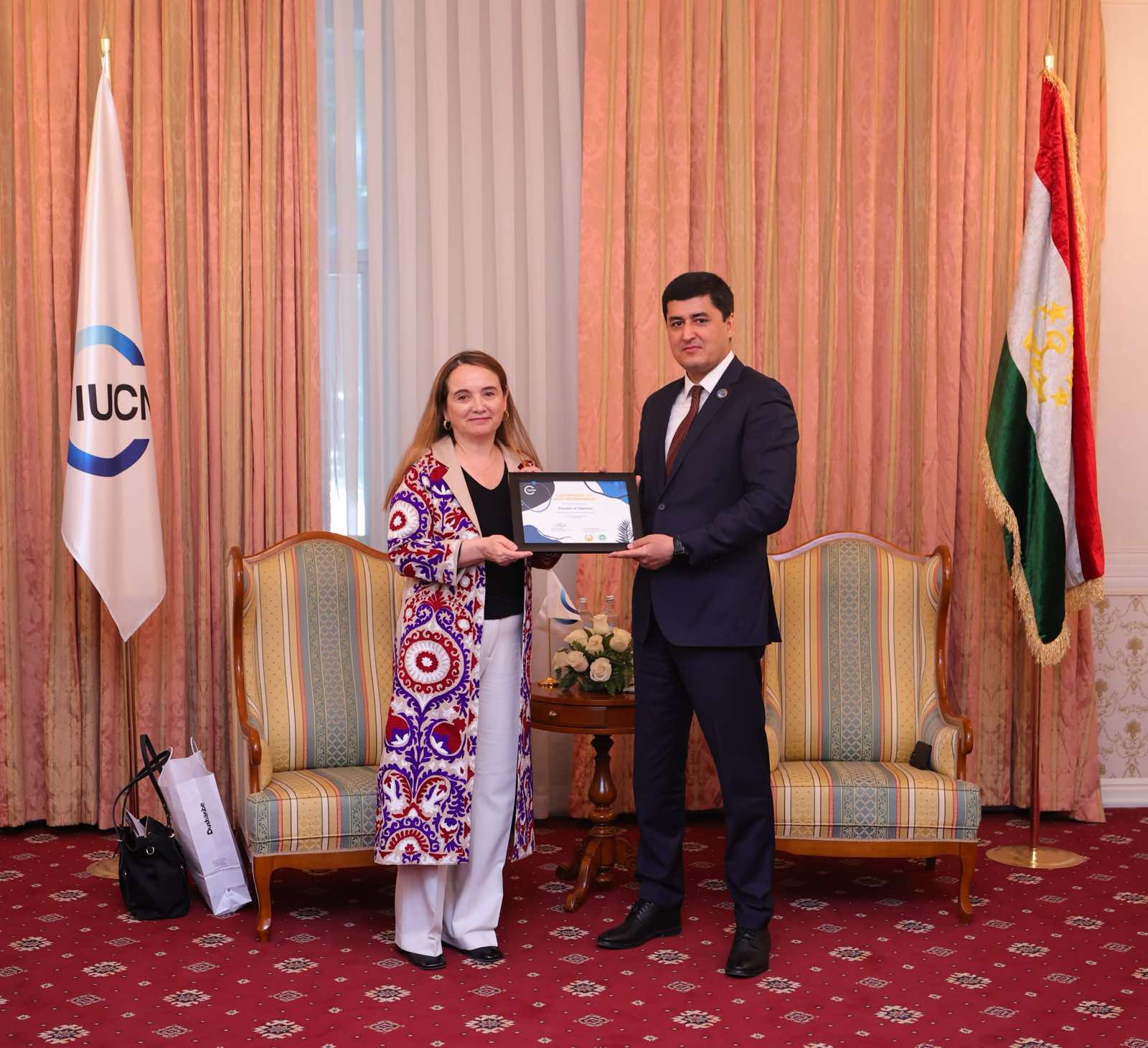IUCN welcomes Tajikistan as its newest State Member
The International Union for Conservation of Nature (IUCN), the world’s largest environmental network, proudly welcomes the Republic of Tajikistan as its 88th State Member. The announcement was made at the International Conference on Glaciers’ Preservation, hosted in Dushanbe, underscoring the country’s leadership in putting glacier conservation and water management at the centre of global environmental dialogue.
The Committee for Environmental Protection under the Government of the Republic of Tajikistan has been designated as the official liaison with the IUCN Secretariat.
“As Tajikistan joins IUCN, we reaffirm our commitment to addressing critical environmental challenges, including glacier preservation, biodiversity protection, and ecosystem restoration,” said H.E. Bahodur Sheralizoda, Chairman of the Committee for Environmental Protection. “Through our membership with IUCN, we look forward to leveraging global expertise and partnerships to advance national conservation priorities and contribute to international efforts.”
Tajikistan is home to some of Central Asia’s most striking natural landscapes, including glacier-fed rivers, alpine meadows, and the towering Pamir Mountains. These ecosystems harbour a wealth of biodiversity, including globally threatened species such as the Snow Leopard, Marco Polo Sheep, and Saker Falcon. The country’s environmental efforts are guided by its National Biodiversity Strategy and Action Plan and supported by a growing network of protected areas, including the Tajik National Park, a UNESCO World Heritage Site.
“We welcome and celebrate Tajikistan as a new State Member of IUCN. This partnership signifies our shared commitment and dedication to building a world that conserves and values nature,” said Dr Grethel Aguilar, IUCN Director General. “Tajikistan has shown inspiring commitment and leadership in conservation, and we are proud to stand alongside them as partners in conservation, bringing together science, policy and partnerships for impact. This includes applying the IUCN Green List Standard to strengthen the quality and effectiveness of Protected Areas, and collaborating to identify and map Other Effective area-based Conservation Measures (OECMs). This is a country of extraordinary biodiversity, rich culture, and vital ecosystems. We look forward to deepening our collaboration on wildlife monitoring, advancing partnerships for glacier protection and strengthening equitable water resource management. We are honoured and grateful to now count Tajikistan as a valued Member of our Union. United as one voice for nature, we are stronger – and more hopeful – together.”
Tajikistan’s accession comes at a time of growing regional cooperation. Through the One Health in nature conservation in Central Asia initiative, IUCN and partners are working to reduce zoonotic disease risks by strengthening ecosystem health and protected area management. Tajikistan also plays an active role in the Blue Peace Central Asia 2.0 initiative, promoting transboundary water governance and collaboration in glacier-dependent basins.
As IUCN’s 88th State Member, and the second from Central Asia, following Uzbekistan’s accession in 2021, Tajikistan gains access to IUCN’s global network of knowledge, expertise, standards and tools. This partnership also opens new opportunities for collaboration through international funding mechanisms such as the Global Environment Facility (GEF) and the Global Biodiversity Framework Fund (GBFF), helping to drive progress toward global climate and biodiversity goals.
More about IUCN in Central Asia





Редактирования Комментарий